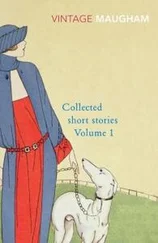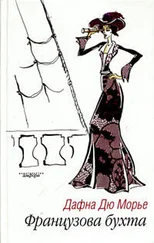| Sometimes, in a little puffing car, he jerks his way along the uneven, muddy track that leads sharply to the right out of Helford village, and takes his tea with his fellow-trippers in the stone kitchen of the old farm-building that once was Navron House. |
Кое-кто, усевшись в пыхтящий автомобильчик, едет по скользкой, тряской, неровной дороге до деревни и, круто свернув в конце направо, выходит у старинной постройки, принадлежавшей некогда усадьбе Нэврон, а теперь занимаемой семьей фермера. |
| There is something of grandeur about it even now. Part of the original quadrangle still stands, enclosing the farmyard of today, and the two pillars that once formed the entrance to the house, now overgrown with ivy and encrusted with lichen, serve as props to the modern barn with its corrugated roof. |
Следы былого великолепия сохранились здесь и поныне: в конце загона видны остатки усадебного двора, а у новенького сарая, подпирая его рифленую крышу, стоят две увитые плющом и поросшие лишайником колонны, в свое время, видимо, украшавшие парадный вход. |
| The farm kitchen, where the tripper takes his tea, was part of Navron dining-hall, and the little half-stair, now terminating in a bricked-up wall, was the stair leading to the gallery. |
Кухня с каменным полом, куда турист заходит, чтобы выпить чашку чаю, составляла когда-то часть обеденного зала, а лестничный пролет, заложенный кирпичом, некогда вел на галерею. |
| The rest of the house must have crumbled away, or been demolished, for the square farm-building, though handsome enough, bears little likeness to the Navron of the old prints, shaped like the letter E, and of the formal garden and the park there is no trace today. |
Прочие детали усадьбы были, наверное, снесены, а может быть, разрушились сами собой. Так или иначе, прямоугольное здание фермы, хотя и приятное на вид, мало чем напоминает прежний, запечатленный на старинных гравюрах Нэврон, построенный в форме буквы Е. Что касается сада и парка - их, конечно, давно нет и в помине. |
| The tripper eats his split and drinks his tea, smiling upon the landscape, knowing nothing of the woman who stood there once, long ago, in another summer, who caught the gleam of the river amidst the trees, as he does, and who lifted her head to the sky and felt the sun. |
Расправившись с чаем и десертом, турист благодушно поглядывает по сторонам, даже не подозревая о женщине, которая много лет назад, в такую же летнюю пору стояла на этом месте и так же, как он, запрокинув голову и подставив лицо солнцу, любовалась блеском воды за деревьями. |
| He hears the homely farmyard noises, the clanking of pails, the lowing of the cattle, the rough voices of the farmer and his son as they call to each other across the yard, but his ears are deaf to the echoes of that other time, when someone whistled softly from the dark belt of trees, his hands cupped to his mouth, and was swiftly answered by the thin, stooping figure crouching beneath the walls of the silent house, while above them the casement opened, and Dona watched and listened, her hands playing a little nameless melody upon the sill, her ringlets falling forward over her face. |
Отзвуки былых времен не долетают до туриста, заглушенные привычным шумом деревенского двора: звяканьем ведер, мычанием коров, грубыми голосами фермера и его сына, окликающих друг друга издалека; он не слышит тихого свиста, доносящегося из темной чащи, не видит человека, который стоит у кромки леса, поднеся руки ко рту, и второго, осторожно крадущегося вдоль стены спящего дома, не видит, как наверху распахивается окно и Дона, наклонившись вперед и не поправляя упавших на лицо локонов, пристально вглядывается в темноту, тихонько постукивая пальцами по подоконнику. |
| The river flows on, the trees rustle in the summer wind, and down on the mud-flats the oyster-catchers stand at ebb-tide scanning the shallows for food, and the curlews cry, but the men and women of that other time are forgotten, their headstones encrusted with lichen and moss, their names indecipherable. |
Все так же несет свои воды река, все так же шелестят под теплым ветерком деревья, сорочаи все так же роются в иле, выискивая корм, протяжно кричат кроншнепы, и только люди, жившие в те далекие времена, давно уже покоятся в земле - имена их забылись, надгробные плиты заросли лишайником, надписи на них стерлись. |
| Today the cattle stamp and churn the earth over the vanished porch of Navron House, where once a man stood as the clock struck midnight, his face smiling in the dim candlelight, his drawn sword in his hand. |
Крыльцо, на котором когда-то ровно в полночь, улыбаясь в тусклом мерцании свечей и сжимая в руке шпагу, стоял человек, развалилось под копытами домашних животных. |
| In spring the farmer's children gather primroses and snowdrops in the banks above the creek, their muddy boots snapping the dead twigs and the fallen leaves of a spent summer, and the creek itself, swollen with the rains of a long winter, looks desolate and grey. |
Вздувшаяся от нескончаемых зимних дождей река кажется унылой и неприглядной, когда фермерские дети бродят весной по ее берегам и собирают первоцвет и подснежники, разгребая тяжелыми от грязи сапогами сухой валежник и прошлогодние листья. |
| The trees still crowd thick and darkly to the water's edge, and the moss is succulent and green upon the little quay where Dona built her fire and looked across the flames and laughed at her lover, but today no ship lies at anchor in the pool, with rakish masts pointing to the skies, there is no rattle of chain through the hawser, no rich tobacco smell upon the air, no echo of voices coming across the water in a lilting foreign tongue. |
И хотя деревья по-прежнему дружной гурьбой сбегают к воде, а мох все так же сочно зеленеет у пристани, где Дона некогда разводила костер и, глядя поверх языков пламени, улыбалась своему возлюбленному, - корабли больше не заплывают в эту заводь, не тянутся к небу высокие мачты, не гремят, опускаясь, якорные цепи, не витает в воздухе крепкий табачный дух, не разносится над водой веселый чужеземный говор. |
| The solitary yachtsman who leaves his yacht in the open roadstead of Helford, and goes exploring up river in his dinghy on a night in midsummer, when the nightjars call, hesitates when he comes upon the mouth of the creek, for there is something of mystery about it even now, something of enchantment. |
Одинокий путешественник, бросивший свою яхту на причале в Хелфорде и на надувной лодке, под протяжные крики козодоев, отправившийся летней ночью вверх по реке, замедляет ход и останавливается, добравшись до устья ручья: что-то загадочное, колдовское, витающее над этим местом, удерживает его. |

![Агата Кристи - На краю [английский и русский параллельные тексты]](/books/32247/agata-kristi-na-krayu-anglijskij-i-russkij-paralle-thumb.webp)
![Агата Кристи - Объявлено убийство [английский и русский параллельные тексты]](/books/33247/agata-kristi-obyavleno-ubijstvo-anglijskij-i-russ-thumb.webp)
![Фрэнсис Фицджеральд - По эту сторону рая [английский и русский параллельные тексты]](/books/34130/frensis-ficdzherald-po-etu-storonu-raya-anglijskij-thumb.webp)


![Дафна Дю Морье - Французов ручей [litres]](/books/411913/dafna-dyu-more-francuzov-ruchej-litres-thumb.webp)